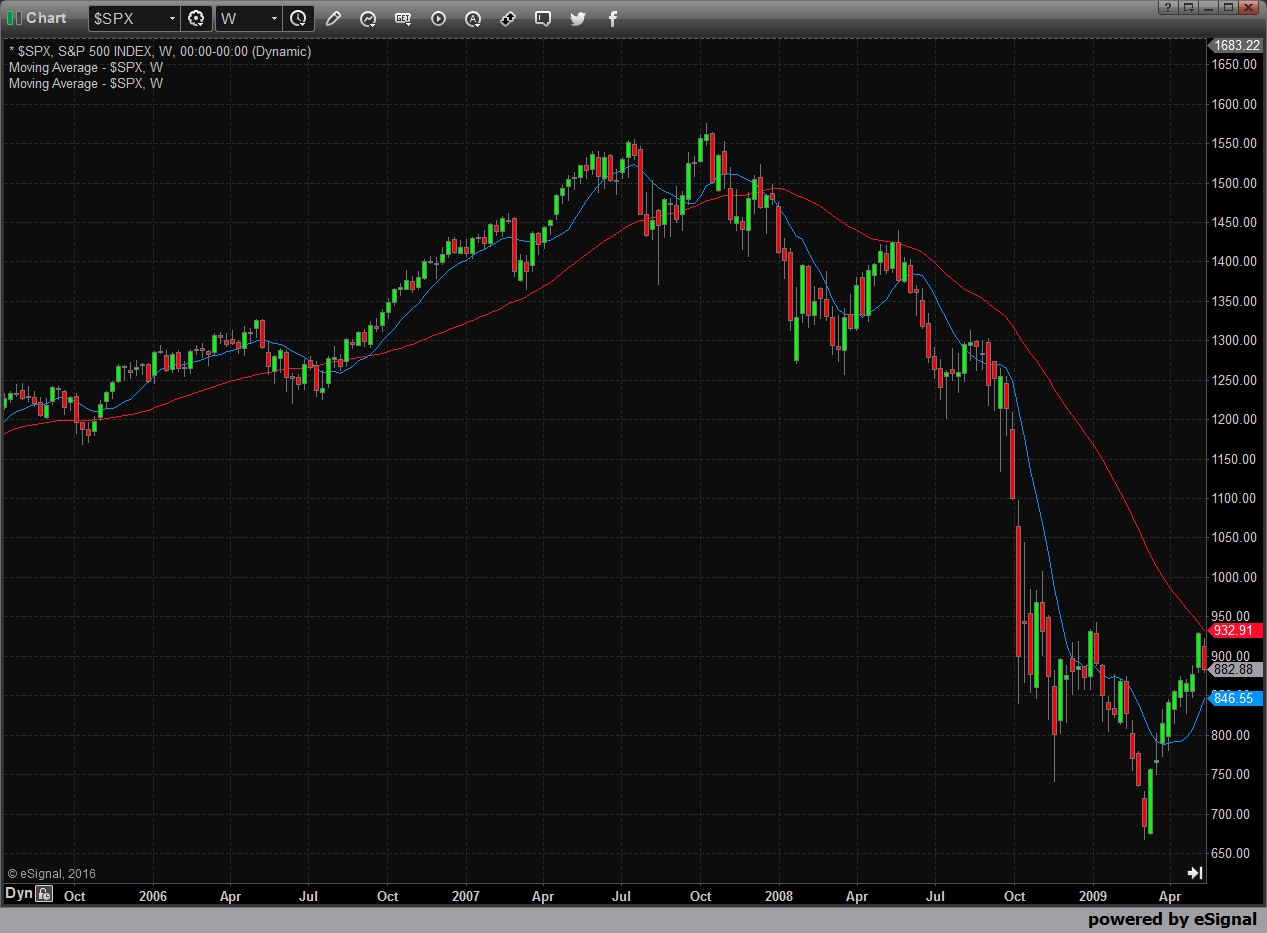
Speaking recently with a professional money manager, he mentioned that a client had inquired less than politely about the 15% cash position in his equity portfolio. Many investors make the mistake of looking at the various asset classes as either “earners” or “growers”. The fact of the matter is there’s a right time to own everything. The aforementioned client was upset that the portion of cash discussed was formerly invested in equities that were “growing” annualized at 18% per year and now “earning” only 1% per year.

The chart above represents the S&P 500 during the 2008 crash. Raising cash near a market high of October 2007 may have seemed foolish when the “growth” rate was so attractive, but the cash “earning” 1% is worth so much more when redeployed in March of 2009. The real lesson here is that risk profiles change for various asset classes at various prices. The risk of owning the S&P at 670 is significantly lower than owning it after a large run-up.
Portfolios and risk are meant to be managed. How do you manage risk in your portfolio?

Our stated purpose is to empower investors toward a better financial future and you cannot be empowered if you’re easily misled by politicians, corporations, or faulty ideas. In such a politically divided time as we now live, among some, criticizing government, or the data it generates, can be seen as an “attack” on one’s party. At the risk of doing so, I’d most like you to understand that the audience we’re trying to reach cover the full spectrum from liberal to conservative and every stretch in between. You may find in life that neither party is telling you the truth, nor do they represent you or have your best interests in mind.
Recently, the Federal Reserve Bank of New York released commentary on completed recent analysis indicating that 15.1% of US households actually have a negative net worth. It’s important to first know that seldom is “research” undertaken at the government level simply for the goal of understanding. It is generally undertaken to support a particular policy or piece of legislation that party leaders are trying to pass. In most cases, the research will easily fit into the party narrative or talking points.



